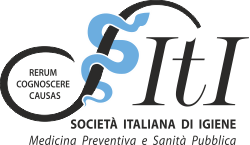Introduction
According to World Tourism Organization statistics, international arrivals in 2009 for tourism, business and other purposes amounted to 880 million1.
In fact, year after year, more and more people are undertaking international journeys, also to developing countries.
International travel poses various health risks depending on the health needs of travellers and the type of travel undertaken. Travellers can experience sudden and significant changes in altitude, humidity, temperature and exposure to a variety of infectious diseases that can lead to illness. Furthermore, serious health risks can occur in areas where housing is of poor quality, sanitary conditions are inadequate, medical services are under-developed and clean water is not available. Accidents continue to be the most frequent cause of morbidity and mortality in travellers but it is also important to protect those who travel from infectious diseases1.
Every traveller should be aware of the fact that protecting his/her health also means protecting others and that to do so one must also respect the culture and environment of the travel destination.
All too often trips are taken with without the necessary preparations and without knowing the risks associated with even short stays in countries where hygienic-sanitary and living conditions differ greatly from ours. While health problems are common among travellers, they are fortunately usually minor, but can, however, ruin the enjoyment of a trip2. The World Health Organization (WHO) reports that as many as half of all travellers experience health problems related to travel in developing countries.
The most frequent disorder is diarrhoea, affecting between 30 and 50 percent of travellers, followed by hepatitis A which affects 1 in 300 of those who are not vaccinated.
The traveller is also subject to pathologies that are now rare or have disappeared in Italy, but very widespread in many countries, including malaria, rabies, typhoid fever and yellow fever.
It is estimated that ten percent of travellers have had to consult a doctor during or after their trip, despite the fact that there are extremely effective and well-tolerated vaccines for many of these diseases, as well as effective prevention based on prudent individual behavior4.
Before traveling 1-2-3
To reduce the risk of getting sick or having accidents while abroad, the best course of action is to consult an outpatient clinic for international travellers, situated at the local health authority premises, at least 4-6 weeks before travelling.
Competent healthcare personnel will address the key infectious and non-infectious risk factors to which travellers are exposed and the most appropriate preventive measures (behavioural precautions, vaccinations, etc.) taking into account:
- the means of transport;
- the destination;
- the duration of the stay and the season in which the trip is taken;
- the purpose of the visit;
- housing hygiene standards and food safety;
- the behaviour of the traveller;
- the traveller’s existing state of health1.
It is advisable for the traveller to check his/her health status before departure. In addition, a dental check-up is recommended, if the traveller has not had one recently, before visiting developing countries or taking long journeys in remote areas, so as to avoid having to resort to dental care in areas with poor sanitary conditions3.
Some categories of particularly vulnerable people require greater attention: children, the elderly, pregnant women, but also individuals who are planning to take an "adventurous" trip.
Abroad, it can be difficult to find the same medicines that we usually take in our home country, and so it is wise for the traveller to bring any medicines that he/she habitually takes as well any others necessary to treat common disorders: the supply must be enough to cover a period longer than the trip itself. It is advisable to store the medicines in hand luggage and an additional supply in another piece of luggage to avoid the risk of loss during transit3.
Certain categories of medicines or specific medical equipment require a certificate signed by the doctor to attest that they are needed by the traveller for personal use. Some countries require that the certificate is not only signed by the doctor, but also by a public health facility. Sanitary items must also be brought in sufficient quantities for the entire visit, unless their availability is assured at the destination. These articles include equipment for dental hygiene, eye care, skin care and personal hygiene1.
In order to deal with any emergencies which may arise during the trip, it is advisable to take out health insurance before leaving, and to be in possession of the numbers and contact details of the embassy of the country the traveller intends to visit and, if possible, of a reliable health centre. Equally important is the gathering of information, especially regarding the political situation of the country. When intending to visit areas deemed at-risk, it is a good idea to inform the Ministry of Foreign Affairs in advance, indicating the chosen travel itinerary (more information can be found on the website www.dovesiamonelmondo.it).
On returning from an international trip
It is recommended to consult a doctor if one of the following symptoms arises on returning from a trip to a tropical country:
- diarrhoea;
- abdominal pain;
- skin rashes;
- persistent cough.
It should also be noted that many diseases in tropical areas have a long period of incubation2.
Sources / Bibliography
- Viaggi internazionali e salute. 2011. WHO 2011, versione italiana a cura della SIMT.
- Viaggiare in Salute. Informazioni e consigli per i viaggiatori internazionali. Regione del Veneto –Direzione prevenzione. 8^ ristampa, aprile 2011.
- Come affrontare un viaggio. Documento pubblicato on line sul sito della Regione Veneto
- Come viaggiare per il mondo evitando rischi per la salute. Documento redatto per ASNAS da S. Di Belli e P. Mori Ubaldini.



